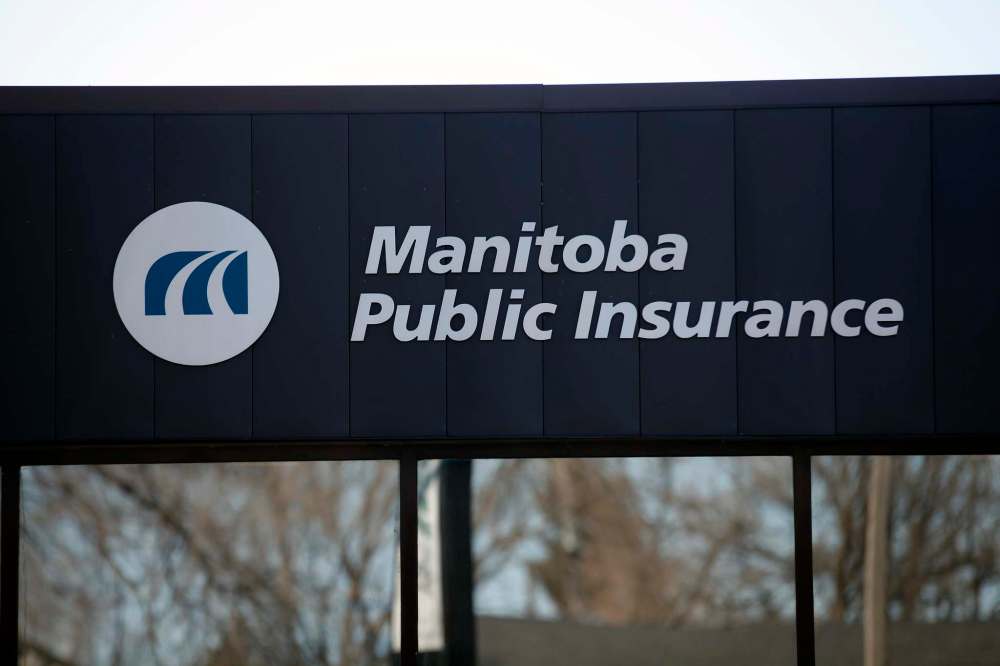PCs accused of breaking law on MPI file Consumers group files motion arguing Tory interference
Read this article for free:
or
Already have an account? Log in here »
To continue reading, please subscribe:
Monthly Digital Subscription
$0 for the first 4 weeks*
- Enjoy unlimited reading on winnipegfreepress.com
- Read the E-Edition, our digital replica newspaper
- Access News Break, our award-winning app
- Play interactive puzzles
*No charge for 4 weeks then price increases to the regular rate of $19.00 plus GST every four weeks. Offer available to new and qualified returning subscribers only. Cancel any time.
Monthly Digital Subscription
$4.75/week*
- Enjoy unlimited reading on winnipegfreepress.com
- Read the E-Edition, our digital replica newspaper
- Access News Break, our award-winning app
- Play interactive puzzles
*Billed as $19 plus GST every four weeks. Cancel any time.
To continue reading, please subscribe:
Add Free Press access to your Brandon Sun subscription for only an additional
$1 for the first 4 weeks*
*Your next subscription payment will increase by $1.00 and you will be charged $16.99 plus GST for four weeks. After four weeks, your payment will increase to $23.99 plus GST every four weeks.
Read unlimited articles for free today:
or
Already have an account? Log in here »
Hey there, time traveller!
This article was published 26/09/2019 (2268 days ago), so information in it may no longer be current.
Has Premier Brian Pallister broken one of the cardinal rules of Manitoba politics? An unprecedented legal motion filed before the Public Utilities Board may ultimately hold the answer.
Just over a month after securing a second majority mandate, Pallister and his Progressive Conservative government will have to defend themselves against allegations they broke provincial law — and one of the canon’s of provincial politics — by usurping the authority of the PUB over Autopac rates.
The motion was filed by the Consumers Association of Canada, a registered intervener at the PUB in Autopac rate hearings slated to start next month. If the PUB agrees with the motion, it would leave the Pallister government open to allegations it authored the first clear act of political manipulation of Autopac rates in more than 30 years.
It’s hard to overstate the importance of the PUB’s decision. In general, politicians in this province know that to have any chance of success, there are certain things you must never do. And at the top of that list is never, ever mess with Manitoba Public Insurance.

The relative benefits of MPI’s crown monopoly on auto insurance is the source of great debate among Manitobans. In fact, it is not a stretch to say that the only thing most people agree on is that politics has no place in the setting of Autopac rates.
That tradition is what makes the approach taken by Premier Brian Pallister and his Progressive Conservative government so unusual.
Twice in the past year the Pallister government has intervened directly in MPI business: first, by passing a regulation that requires significantly higher financial reserves to cushion future rate increases; and second, by frustrating MPI’s efforts to bypass private insurance brokers to offer services online.
Fortunately for the premier and his party, these two incidents had not been fully explored when the Tories sought a second term in the recent election. However, the newly re-elected Pallister government will be forced to defend its actions next month when the PUB convenes to consider MPI’s 2020 rate application.
In its filings to the PUB, the consumers association relies heavily on the history of legislation created specifically to ensure the elected branch of government has no direct hand in setting Autopac rates.
A motion by the Consumers Association of Canada will ask the PUB to strike down the reserve accounts regulation. It will argue the Pallister government broke provincial law when it used a cabinet directive to change MPI operations in a way that could directly affect Autopac rates.
The association and lawyers from the Public Interest Law Centre are also expected use the PUB hearings to challenge the Tory government’s attempts to help private insurance brokers by keeping them part of the retail Autopac system.
In its filings to the PUB, the consumers association relies heavily on the history of legislation created specifically to ensure the elected branch of government has no direct hand in setting Autopac rates.
The watershed moment for the creation of those laws was in 1988, when allegations arose that premier Howard Pawley’s government had manipulated Autopac rates for political purposes. It was one of the issues that contributed to the destruction of the Pawley government in the 1988 election, and led to the creation of a new generation of laws that prohibited political interference in Autopac rates.

This legislation includes the Manitoba Public Insurance Act, the Crown Corporations Governance and Accountability Act and the law that governs PUB authority.
However, despite the unambiguous legal restrictions on political involvement in Autopac, there were two instances this past year in which the Pallister government issued directives that could have a huge effect on future rates.
In May, the Tory cabinet passed a regulation that stipulated MPI rate stabilization reserves were to be maintained at roughly $350 million, nearly twice its current level. This reserve account provides cash for MPI to use to help protect vehicle owners against huge spikes in rates in the event of an increase in claims costs.
The consumers association, and other interveners, have argued that doubling rate stabilization reserves is unnecessary and could ultimately cause Autopac rates to go up. MPI has pledged to ensure that doesn’t happen, by using profits from the sale of “extension” insurance, the add-ons that Autopac customers choose to get coverage that goes beyond basic auto insurance.
“Our client believes that the regulation unlawfully interferes with the independent rate approval authority of the Public Utilities Board.” – lawyer Byron Williams
Even so, the association believes such a move would limit future rebates. Since 2000, Autopac customers have received at least seven rebates. This included the biggest one in 2011, when more than $320 million was refunded to vehicle owners.
In the second instance of direct involvement, the Tory cabinet directed MPI management to continue its relationship with private insurance brokers, which function now as the retail arm of Autopac.
MPI wants to move the majority of its services and transactions online, which it says would cost hundreds of millions of dollars less than the current system, which involves lucrative commissions paid to private brokers. Those savings, MPI has argued, would ultimately translate into lower Autopac rates.
Byron Williams, a lawyer with the Public Interest Law Centre, said that his client will argue the regulation is not lawful because it is in direct conflict with provincial legislation, which grants sole authority for rates to the PUB. “Our client believes that the regulation unlawfully interferes with the independent rate approval authority of the Public Utilities Board,” he said.
A spokesman for Crown Services Minister Jeff Wharton said the justice department, which was consulted about the regulation, is confident it is legal and above board.
“The attorney general’s overarching position is that reserves regulation is valid,” the email statement said. “The attorney general will be represented by legal counsel at the PUB hearings, as warranted, to respond to the specific arguments as they will be made at that time.”
dan.lett@freepress.mb.ca

Born and raised in and around Toronto, Dan Lett came to Winnipeg in 1986, less than a year out of journalism school with a lifelong dream to be a newspaper reporter.
Our newsroom depends on a growing audience of readers to power our journalism. If you are not a paid reader, please consider becoming a subscriber.
Our newsroom depends on its audience of readers to power our journalism. Thank you for your support.












